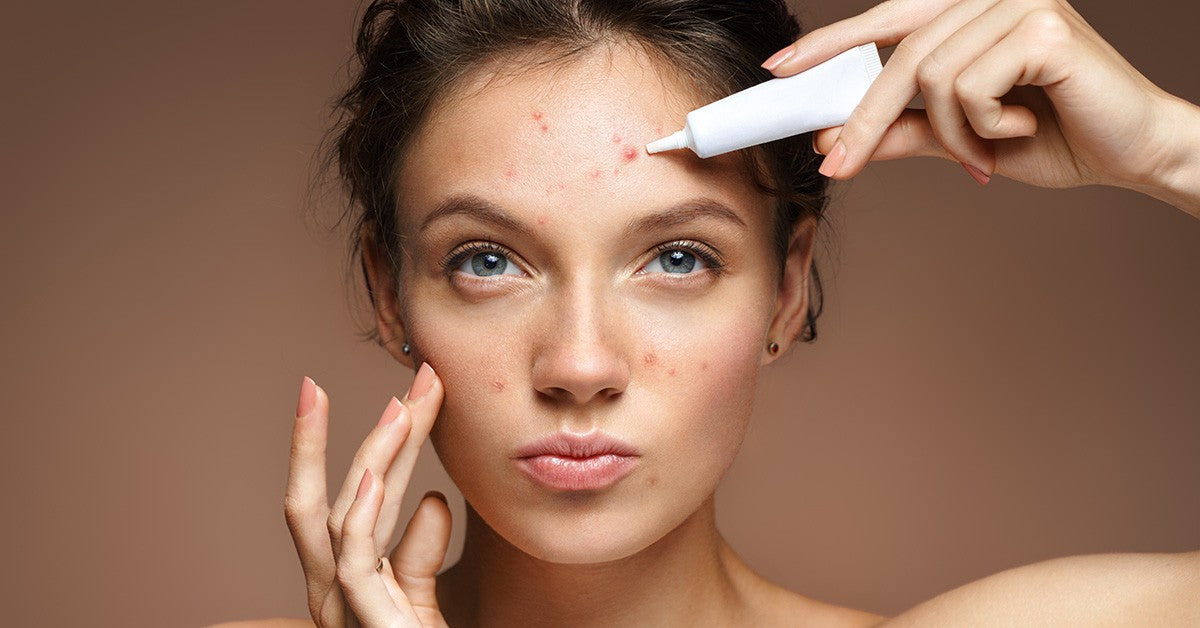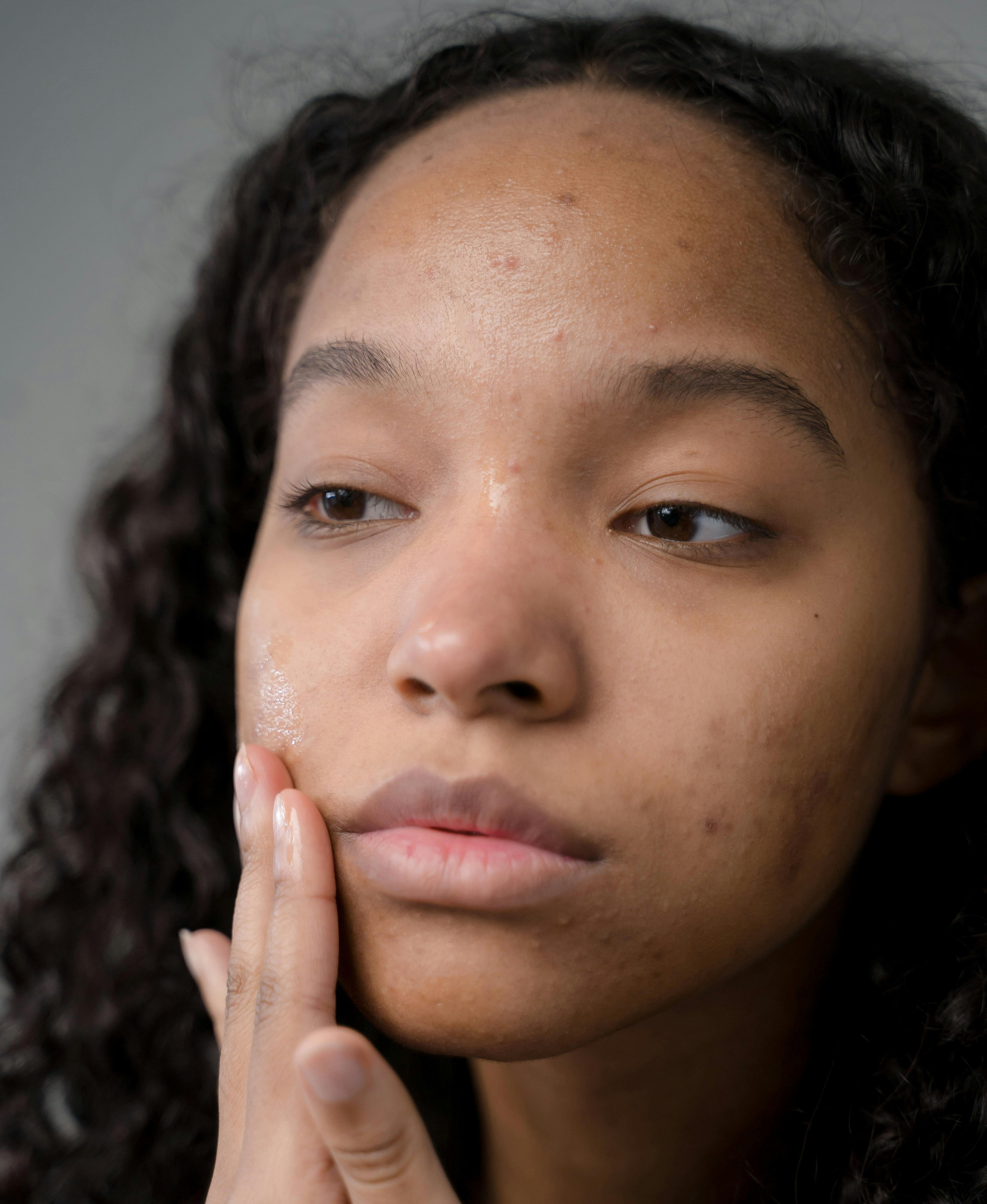How To Treat Acne Scars: 7 Effective Treatments and Skincare Options

Acne scars are more than just physical marks; they deeply impact your confidence and self-esteem, serving as lingering reminders of past breakouts. These scars, whether raised or depressed, leave visible imprints on your skin, fostering feelings of self-consciousness and insecurity. Yet, amidst these challenges, there is hope: effective treatments are available to help diminish the appearance of acne scars and restore smoother, clearer skin.
Let us embark on a journey to explore the intricate world of acne scars. We'll delve into the different types of scars, uncover their underlying causes, and discover the best treatment options available. By gaining a deeper understanding of acne scars and their formation, you'll be empowered to make informed decisions about your skincare journey, ultimately fostering greater confidence and self-assurance in your skin's health and appearance.
Types of Acne Scars and How They Are Formed
Acne scars are formed as a result of inflammatory acne lesions, such as papules, pustules, cysts, and nodules, that damage the skin's underlying tissue during the healing process. These scars can manifest in various forms, but they are typically classified into two main types: raised acne scars and depressed acne scars. Understanding how each type is formed provides insight into their distinct characteristics and the most effective treatment approaches.
Acne scars are generally classified into two main types: raised acne scars and depressed acne scars. Each type has distinct characteristics and requires different treatment approaches.
Raised Acne Scars

Raised acne scars, also known as hypertrophic or keloid scars, occur when excess collagen is produced during the wound healing process. When the body responds to an acne lesion, it may produce too much collagen, leading to raised bumps on the skin's surface. This excessive collagen production can result from an overactive healing response or genetic predisposition.
How Are They Formed?
- Overproduction of Collagen: In response to an inflammatory acne lesion, the body initiates the wound healing process by producing collagen fibers to repair the damaged tissue.
- Excess Collagen Deposition: In some cases, the body may produce an excessive amount of collagen, leading to raised scar tissue.
-
Persistent Inflammation: Persistent inflammation or repeated trauma to the healing wound can further stimulate collagen production, exacerbating scar formation.
Characteristics of Raised Acne Scars:
· Firm and thick texture
· Elevated above the surrounding skin
· Can be red or dark in color
Treatment Options for Raised Acne Scars:
· Silicone gel sheets: These can help flatten and soften scars over time.
· Corticosteroid injections: These injections can reduce inflammation and size of the scar.
Depressed Acne Scars

Depressed acne scars, also known as atrophic scars, result from the loss or damage of underlying skin tissue during the healing process. These scars appear as indentations or depressions in the skin's surface and are commonly associated with severe or cystic acne lesions.
How Are They Formed?
- Loss of Subcutaneous Fat: Severe inflammatory acne lesions, such as cysts or nodules, can destroy the underlying subcutaneous fat tissue, resulting in a loss of volume and support in the skin.
- Incomplete Healing: Inadequate or delayed healing of acne lesions can lead to the formation of depressed scars. Factors such as picking or squeezing pimples can disrupt the healing process and contribute to scar formation.
- Collagen Degradation: In some cases, the body may not produce enough collagen during the wound healing process, resulting in weakened scar tissue and depressed scars.
Best Treatments for Acne Scars
Microneedling
Microneedling, also known as collagen induction therapy, is a sophisticated treatment involving tiny needles to create controlled micro-injuries in the skin. This elegant process stimulates the skin's natural healing response, promoting collagen production and elastin synthesis. Particularly effective for improving the appearance of depressed acne scars, microneedling encourages skin regeneration and fills in the indentations, offering a holistic approach to skin rejuvenation.
RF Microneedling

Best for: Depressed acne scars; tailored to various skin types and tones.
Read More: How Microneedling Helps Treat Acne Scars and Improves Skin Texture
Chemical Peels
Chemical peels utilize refined chemical solutions, such as alpha hydroxy acids (AHAs), beta hydroxy acids (BHAs), or trichloroacetic acid (TCA), to exfoliate the outer layer of the skin. By inducing controlled shedding of damaged skin cells, chemical peels reveal smoother, regenerated skin underneath. Different types of chemical peels target specific acne scars and skin concerns, providing a luxurious pathway to skin perfection:
- Superficial Peels: Ideal for treating mild acne scars and surface irregularities; suitable for all skin types.
- Medium Peels: Penetrate the middle layer of the skin (dermis) and are effective for addressing moderate acne scars and pigmentation issues.
- Deep Peels: Reserved for treating severe acne scars and deep wrinkles; requires careful consideration and may not be suitable for all skin types.

Dermal Fillers
Dermal fillers, such as hyaluronic acid or collagen injections, are exquisite solutions that add volume and fullness to the skin. They can fill in depressed acne scars and restore smoothness to the skin's surface, providing an opulent touch to skin care. Dermal fillers are particularly effective for addressing atrophic or depressed acne scars by lifting the depressed areas and creating a more even skin texture.

Seek guidance from a registered doctor or nurse who is specialized and trained in the field.
Best for: Atrophic or depressed acne scars; suitable for various skin types and tones.
Fractional Laser Resurfacing
Fractional laser resurfacing utilizes advanced laser energy to create microscopic columns of thermal injury in the skin. This elegant approach stimulates the body's natural healing process, promoting collagen production and remodeling of scar tissue. Fractional lasers can target specific areas of the skin, making them highly effective for treating both raised and depressed acne scars, while also enhancing overall skin texture and tone.

Best for: Both raised and depressed acne scars; suitable for various skin types and tones.
Platelet-Rich Plasma (PRP) Therapy
Platelet-rich plasma (PRP) therapy harnesses the regenerative properties of the patient's own blood to promote tissue repair and regeneration. PRP is meticulously extracted from the patient's blood and then injected into the skin, where it releases growth factors and stimulates collagen production. PRP therapy can enhance the results of other acne scar treatments and accelerate the healing process, offering a holistic and exclusive approach to skin regeneration. Seek guidance from a professional who specializing in PRP therapy.
Best for: Enhancing results of other treatments; suitable for various skin types and tones.
Acne Scar Causes
Inflammation
Inflammatory acne lesions, such as cysts and nodules, significantly contribute to the formation of acne scars. These deep-seated lesions instigate inflammation within the skin, damaging surrounding tissue and disrupting the natural healing process. The body's response to inflammation can result in either the overproduction or destruction of collagen fibers, leading to raised or depressed scars. Individuals with severe or untreated acne are more susceptible to permanent scars due to prolonged inflammation within the skin.
Delayed Healing
Slow or incomplete healing of acne lesions can increase the likelihood of scar formation. Several factors can contribute to delayed healing, including:
-
Picking or Squeezing Pimples: Manipulating acne lesions by picking, squeezing, or popping them can cause further trauma to the skin, prolonging the healing process and increasing the risk of scarring.
-
Genetic Predisposition: Genetic factors can determine an individual’s susceptibility to scarring. Some individuals may have a genetic predisposition to form scars more easily or heal more slowly than others.
-
Skin Type: Certain skin types, such as oily or acne-prone skin, may be more prone to scarring due to increased sebum production and inflammation. Additionally, individuals with darker skin tones may be more susceptible to post-inflammatory hyperpigmentation, a common type of acne scar.
Luxurious Skincare Solutions for Acne Scars
Navigating the journey of dealing with acne scars can be challenging, but we believe in the power of holistic skincare solutions to restore and rejuvenate. Whether you seek sophisticated over-the-counter products or professional treatments, it's imperative to choose options that foster skin healing and regeneration. Here, we present some of the most exquisite skincare solutions and ingredients designed to diminish acne scars and enhance your skin’s overall texture and tone.
Topical Retinols
Topical retinols are renowned for their ability to improve the appearance of acne scars by promoting cell turnover, reducing inflammation, and stimulating collagen production. These ingredients are particularly effective for addressing post-inflammatory hyperpigmentation and superficial acne scars.

Best for: Post-inflammatory hyperpigmentation, superficial acne scars; suitable for most skin types but may cause irritation for sensitive skin.
Alpha Hydroxy Acids (AHAs)
Alpha hydroxy acids, such as glycolic acid and lactic acid, are elegant chemical exfoliants that enhance the appearance of acne scars by promoting cell turnover and reducing hyperpigmentation. They work by loosening the bonds between dead skin cells, resulting in smoother, more radiant skin.
 iS Clinical Active Serum for Healthy Skin
iS Clinical Active Serum for Healthy Skin
Best for: Superficial acne scars, uneven skin texture; suitable for most skin types but may cause irritation for sensitive skin.
Beta Hydroxy Acids (BHAs)
Beta hydroxy acids, such as salicylic acid, are oil-soluble exfoliants that penetrate deep into the pores to unclog and exfoliate dead skin cells. They excel in improving the appearance of acne scars by reducing inflammation, preventing future breakouts, and promoting skin renewal.

iS Clinical Cleansing Complex Polish with BHA
Best for: Acne-prone skin, inflammatory acne scars; suitable for most skin types but may cause dryness for sensitive skin.
Acne Scar Treatment FAQs
“How do you fade scars ASAP?”
To swiftly diminish scars, consider sophisticated treatments like RF microneedling, chemical peels, or laser therapy. These methods stimulate collagen production and enhance skin regeneration, offering a refined approach to skin healing.
"Does vitamin C help acne scars?"
Absolutely, vitamin C is renowned for its potent antioxidant properties. It illuminates the complexion, reduces hyperpigmentation, and gradually improves the appearance of acne scars, enhancing your skin's natural radiance.
"How to get clear skin?"
Achieving clear skin is an art, requiring a dedicated skincare routine and an understanding of personal triggers. Professional guidance from a dermatologist or Dermal clinician can provide bespoke advice, ensuring a journey toward luminous, healthy skin.
“Do Acne Scars Go Away on Their Own?”
While some mild acne scars may gradually fade with diligent care and healthy habits, more pronounced scars often benefit from professional treatments to achieve significant improvement and restore your skin’s refined radiance.
Experience Holistic Acne Scar Solutions at Skin to Heart
At Skin to Heart, we pride ourselves on offering exclusive, holistic scarring treatments tailored to your unique skin needs. Our commitment goes beyond the skincare; we foster a community centered on holistic wellness, encompassing mental health and spirituality. Schedule a consultation with our experienced Dermal Clinicians to explore exceptional treatment options and embark on a journey of rejuvenation and self-discovery and a journey of maintaining your skin health for life.
0 comments

